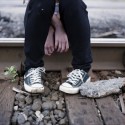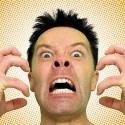The big problem – drugs and alcohol
I started needing alcohol in the morning to function
“Generally, people don’t have a clear concept of what the treatment for drug addiction is … they come either with no expectations or with various expectations,” said Dan Wolf, psychologist and managing director of The Gap and First Step, two drug rehabilitation centres in Johannesburg.
“People stumble into the culture of recovery as an opportunity to address the chaos in their lives.
“We look at the underlying emotional turmoil and connect them with a culture different to the one in which their world revolves, around procuring drugs.
“We help people find a new way of being — a more meaningful one that puts drugs and alcohol out of a job.”
Drug addiction can happen to anybody. It’s a downward spiral that can be triggered by an emotional incident.
Once a person has made the transition from drug use to addiction, behaviour becomes geared to obtaining the drug, even though addicts report that the euphoria is not as intense as it once was.
Jason*, a Johannesburg student, found himself in a downward spiral after suffering the emotional grief of losing a close friend in a car accident and being told, during the same period, that one of his parents had a terminal disease.
“I couldn’t cope with the grief and started suffering from extreme anxiety and panic attacks. My doctor prescribed tranquillisers but didn’t realise that I needed therapy to deal with my emotional anxieties.”
After his parent died, Jason’s intake of tranquillisers increased substantially and he started abusing painkillers that contain codeine.
“I started needing alcohol in the morning to function. The substances quickly became both a mental and physical addiction for me.”
He stopped attending lectures and spent days in a drugged state. When he failed his final year it was a huge blow to his self-esteem , which only increased his downward spiral.
Drug addicts have a decreased response to normal biological stimuli such as food, sex and social interaction. Hyperactivity in certain areas of the addict’s brain creates intense motivation to find the drug rather than seek natural rewards. There’s decreased ability to overcome this urge.
Jason’s family was in denial about his problem.
“My home life became a big, dark secret. I did nothing but spend time in my car trying to get more drugs. My physical tolerance increased and I needed copious amounts [of drugs and alcohol] to obtain the same physical effects.
“I started indulging in criminal activities:, forging prescriptions, lying to doctors and I even stole a family member’s credit card and went on a shopping spree. I was arrested and spent a night at a police station.
“I broke down and finally admitted I couldn’t cope with my life … but my family brushed it under the carpet and I carried on going down.
“In desperation, I bought an overseas flight ticket , left drugged and drunk, and spent nine months in that state.
“I came back to South Africa and shortly afterwards woke up with my whole left side paralysed. At that stage I was taking more than 90 tranquillisers a day.”
Wolf said there is no real explanation of why people abuse substances. It’s usually a reaction to emotional turmoil. People are searching for something, looking to fill the “hole in the soul”. Drugs can’t fill that hole, they can only momentarily obliterate it, but it comes back double the size.
Jason went back to varsity and somehow completed his degree. But he still obsessed about using drugs.
“I joined a company … but my social life was non-existent. I only knew isolation and shame.”
Wolf said that addiction is a shame-based disease. In society, there is an incredible lack of sympathy for addicts because it’s assumed that they bring it on themselves.
When Jason’s other parent died, another emotionally traumatic period was triggered.
“I tendered my resignation before they could fire me. My alcohol and drug intake increased to astronomical proportions and I became petrified of the outside world. It became an ordeal for me to buy groceries.
“I decided to lock myself up in my house until I could put an end to my life.
“For two weeks, I downed alcohol and took prescription drugs incessantly. I started feeling that I was going totally insane. I couldn’t ask for help because my shame was so great. Physically, I was burning. I was so toxic that I felt like someone had set me alight. I was violently ill and prayed to die.”
Jason was found in this state by a friend and taken to a drug rehabilitation centre. He spent days unconscious in the hospital.
“Finally, there was relief that someone had taken notice of the state I was in.”
Wolf said: “This is a story of true rock-bottom. What was necessary was a loving, connecting, protective environment. ”
Jason had become so isolated that he felt that if he died no one would notice.
“I was excited to go into treatment. I discovered that drugs and alcohol were just a symptom of my condition. I had to look deep inside myself and deal with what was going on inside me.”
Wolf said : “One of our slogans is: ‘Dealing with reality on its own terms’. Emotional responses are primitive. People anticipate feeling scared, alone and abandoned, and they don’t want to deal with those feelings.
“Rehab provides a safe, healing, social, supportive and non- judgmental environment in which to thrash out these emotions. People need to allow themselves to have emotional experiences that allow for growth and maturity .
“Drugs only help you to sidestep the developmental process. There needs to be a willingness and consciousness to develop ourselves into emotionally strong human beings.”
Addiction is like being in a protracted adolescence, with the attendant lack of personal responsibility. The important part of the equation is making the transition from adolescence to living an adult emotional life, which means responding instead of reacting to situations.
Wolf said: “The culture of recovery is about developing supportive relationships. With addiction, you’re like a feather in the wind, but when you start having relationships you become rooted. You start to care about other people, but most importantly you care about yourself.”
* Not his real name.
____
source: http://www.thetimes.co.za

